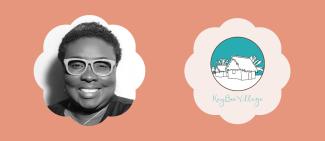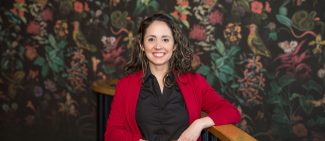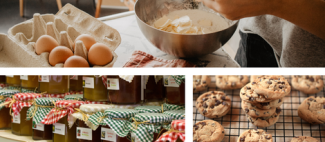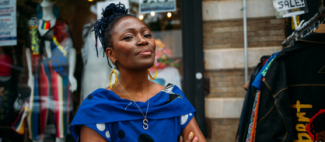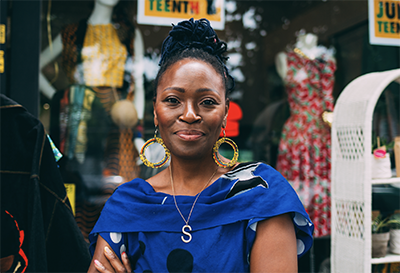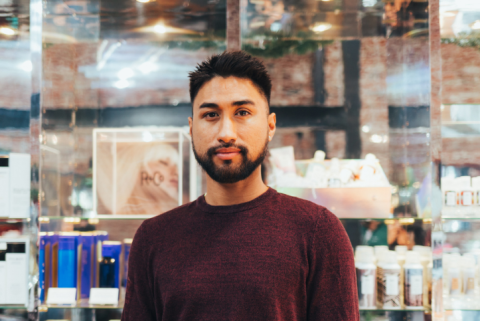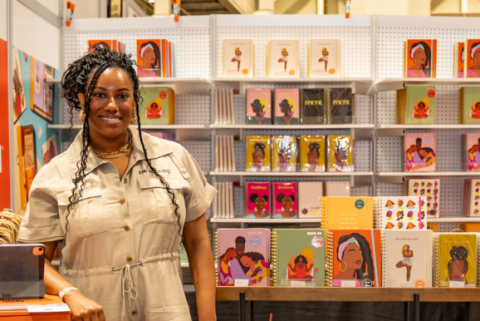We’ve watched as women of color peeled away the caution tape in white-male-dominated industries to own their rightful places in leadership and influential positions, especially entrepreneurship. There are 12.3 million women-owned businesses who propel the United States’s economy, accounting for more than $1 trillion in annual revenue.
But when it comes to health and wellness services, there are still inequities that present opportunities for more support and advancements. According to the CDC, about 700 people die during pregnancy each year or in the year after giving birth. Even more disparaging, Black women are three times more likely to die from a pregnancy-related cause than white women. Black women are also at a disadvantage regarding the protective factor of the early initiation of prenatal care, according to the National Academies of Sciences, Engineering, and Medicine. 67% participated in prenatal care in the first trimester compared with 77% of non-Hispanic white women.
Historically, the Black American birthing experience has always been a unique journey due to slavery and centuries of structural racism. Black women often turned to a midwife, doula, or birthing coach to deliver home births. Today, health equity for Black women continues to be an ongoing conversation and evolution. Small business owners like #AllforSmall birthing coach, Kaybee Beach, are committed to creating trusted and safer birthing experiences. Her New York City-based company, Kaybee Village, offers holistic birth and postpartum doula services and classes to make the birthing experience physically safe and emotionally comfortable.
Kaybee moved to the United States from Saint Vincent, and as a mother of two noticed that the care for people transitioning into motherhood was different. The relationships between healthcare providers and new moms were fractured. As a doula, she wanted to share her experiences and provide more support for new mothers and their families—studies have shown that doula presence while giving birth leads to a decrease in preterm birth or low birth rate and C-sections. Through Kaybee Village, Kaybee spends a lot of time educating and supporting parents and children of all backgrounds and identities.
This Women’s History Month, we chatted with Kaybee about why being a Black Doula is vital to her community and what owning a small business in women’s health means for the future of family health care.
Q. Tell us more about you and your small business.
"I am Kaybee, holistic birth and postpartum Doula, new parent educator, advanced certified newborn care specialist, and community lactation educator. I am from St.Vincent and the Grenadines, a proud Garifuna! I do a lot of community doula work and enjoy it."
Q. What influenced you to become a Doula and why?
"My business, Kaybee Village, is a village of support for persons starting or expanding their families. We provide birth and postpartum doula services, new parent coaching, parent classes, newborn care, lactation education, perinatal mood, and anxiety disorder classes. Kaybee Village also offers meal prep nanny referrals, and we give clients access to our vast network of perinatal and non-perinatal professionals."
Q. Why is your small business important to you? For women, specifically Black women?
"I became a doula primarily to do my part in improving the Black maternal health figures in NYC. I also believe that everyone deserves nonjudgemental support through a life-changing event. I am also because I am completely amazed by the process of birth. My love language is doing, so I get to do things for birthing persons and their families in the Postpartum period and nurture and support them in their transition into parenthood or expansion of families.
My business is such a labor of love. Being able to support birthing communities of all backgrounds, particularly the Black community, brings me tremendous joy and a deep sense of purpose. Outside of my business, my community doula work is one of the most important things."
Q. How do you hope your small business will create community impact?
"I hope my business will be a part of parenting’s normalizing support during birth, the 4th trimester. Too many of our communities glorify struggling. There is absolutely nothing glorious about a birthing person working during the 4th trimester, for example, and inadvertently harming themselves and their baby in the process. There is no reason to be ashamed to get help. Professional help is most often more needed to be honest."
Q. What does Women’s History Month mean to you?
"Women’s history month reminds me of how far women have come, how women have achieved and grown. [The month] reminds me of how much society has evolved in shifting narratives and expectations about women. Yet, it also reminds me of how much more work is needed."
Q. If you had a hand in writing history, what would your legacy story be?
"My legacy story? I guess it will be a story about an Afro-Indigenous immigrant woman who overcame many challenges in a country that wasn’t her original home. It would be a story about a woman who committed herself to help her community and birthing communities in general."
